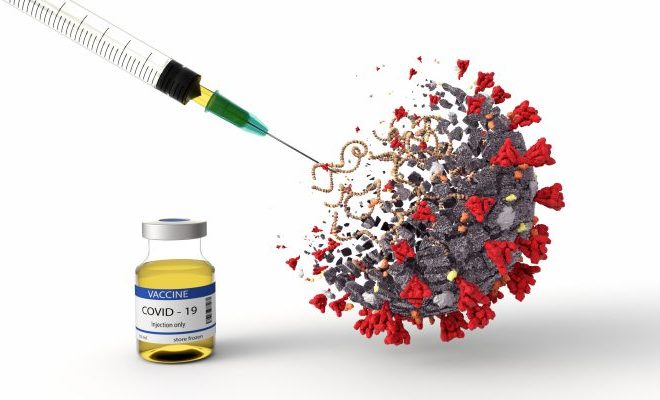
Beginner’s Guide to Toddler Milestones to Add to Your Routine
The toddler years—spanning from ages 1 to 3—are some of the most exciting and transformative periods in a child’s development. During this time, your little one will experience significant changes, from learning to speak and walk to mastering essential social and emotional skills. As a parent, it can be both exhilarating and overwhelming to navigate these milestones, but understanding what to expect and how to support your toddler through this process can help you foster a nurturing environment that promotes growth.
The toddler years are not just about physical development; they are also crucial for cognitive, emotional, and social growth. Every child is unique, so the timing and pace of these milestones may vary, but there are general developmental stages that most toddlers will experience. This beginner’s guide will walk you through some key milestones to incorporate into your routine, ensuring that your toddler’s growth is supported in a well-rounded, healthy way.
1. Physical Milestones: Crawling, Walking, and Beyond
When it comes to physical milestones, toddlers are on the move. After mastering basic motor skills in infancy, toddlers begin to refine their movements as they gain confidence and coordination.
-
Walking: Most toddlers take their first steps around 12 months, though some may wait until 14 or 15 months. By 18 months, many toddlers are walking confidently, although their movements can still be a bit wobbly. It’s important to give them space to practice and explore their environment, which helps them develop balance and coordination. You can encourage walking by providing supportive shoes and keeping walkways clear of obstacles.
-
Running and Climbing: Between 18 and 24 months, toddlers start to run, albeit with limited control. Climbing becomes a fascination, too. To help them safely explore, set up an area where they can practice climbing, such as low steps or soft, cushioned areas. Keep a watchful eye to prevent falls and ensure that their exploration is as safe as it is exciting.
-
Fine Motor Skills: Around 18 months, toddlers begin using their hands with more precision. They can grasp objects like crayons and stacking toys and may begin to practice feeding themselves with utensils. Encourage these activities by offering a variety of safe objects to manipulate, such as blocks, puzzles, and simple art supplies. These activities support the development of their hand-eye coordination and dexterity.
2. Speech and Language Development: From Babbling to Speaking
Language development is a key milestone during the toddler years, with toddlers typically speaking their first words between 10 and 14 months. By 18 months, many children have a vocabulary of about 10 to 15 words, and by the time they turn two, their vocabulary may grow to around 50 words or more.
-
First Words: Encouraging speech development starts with talking to your toddler consistently. Narrate your daily activities, ask them questions, and give them plenty of opportunities to interact with language. Simple activities like reading aloud or singing songs with repetition can help expand their vocabulary. Using clear, simple words and mimicking sounds is another effective strategy.
-
Combining Words: By age two, toddlers often begin combining two words into simple phrases like “want cookie” or “big truck.” These early sentences are important in the development of grammar and sentence structure. Provide plenty of opportunities for your child to express themselves and help them expand their thoughts by offering complete sentences in return. For example, if they say “doggie bark,” you might respond with “Yes, the doggie is barking loudly.”
-
Understanding Instructions: At around 18 months, toddlers start to understand simple directions like “come here” or “give me the toy.” Gradually increasing the complexity of instructions will help them develop comprehension skills. Use clear, concise language, and ensure that they can follow simple requests before progressing to more challenging ones.
3. Cognitive Milestones: Problem-Solving and Learning Through Play
Cognitive milestones focus on how toddlers begin to interact with the world around them, forming the foundation for future learning. Problem-solving skills develop as toddlers begin to understand cause and effect and explore how objects and toys work.
-
Object Permanence: By the age of two, toddlers have mastered the concept of object permanence—the understanding that objects still exist even when they can’t be seen. This leads to a love of games like peek-a-boo and hide-and-seek. You can support this milestone by hiding toys and encouraging your toddler to find them, which reinforces their ability to search and explore.
-
Imaginative Play: At around two years of age, many toddlers begin to engage in pretend play, like “feeding” a doll or pretending to cook in a toy kitchen. Encourage these activities by providing toys that allow them to role-play and create stories. This type of play fosters cognitive flexibility, creativity, and problem-solving skills.
-
Counting and Shapes: Around the age of two, many toddlers start to recognize numbers and shapes. They may be able to count to 10 or identify basic shapes like circles, squares, and triangles. Incorporating these concepts into everyday activities, such as counting the steps as you climb or identifying shapes during playtime, can help solidify their understanding.
4. Social and Emotional Milestones: Building Bonds and Expressing Feelings
The toddler years are critical for social and emotional development as children begin to form relationships and express themselves more clearly. During this time, toddlers start to understand their own emotions and those of others, which is key for building empathy and strong relationships.
-
Separation Anxiety: Between 12 and 18 months, toddlers may experience separation anxiety when parted from their primary caregivers. This is a normal stage of development as toddlers become more aware of their surroundings and their attachment to their caregivers deepens. To ease anxiety, establish predictable routines for leaving and returning, and offer comfort when you reunite.
-
Self-Assertion and Independence: At around 18 months to two years, toddlers begin asserting their independence. They may start saying “no” or insisting on doing things by themselves. While this can be challenging for parents, it’s an important part of developing autonomy and a sense of self. Encourage this independence by giving your toddler choices, such as picking out their clothes or deciding which snack to have.
-
Sharing and Socializing: Toddlers are beginning to understand the concept of sharing, though they may not always practice it well. By age three, many toddlers are more adept at taking turns and playing cooperatively with others. You can help them develop these skills by modeling positive behaviors, encouraging group activities, and praising their efforts to share and interact.
5. Incorporating Milestones Into Your Routine
To support these toddler milestones, it’s important to create a routine that incorporates a mix of play, rest, and learning. A balanced routine fosters consistency and gives your toddler the structure they need to thrive.
-
Daily Playtime: Make time each day for active play, whether it’s running around in the park, playing with building blocks, or engaging in imaginative games. Playtime is essential for both physical and cognitive development, so aim to make it a non-negotiable part of your day.
-
Structured Learning: Incorporate small moments of learning into your daily routine. Sing the alphabet song while dressing, count stairs while climbing, or identify shapes during mealtime. These micro-learning moments enhance their cognitive development without requiring extra time or effort.
-
Rest and Downtime: Toddlers need plenty of sleep to support their physical and cognitive development. Make sure your routine allows for nap times and a consistent bedtime to ensure your toddler gets the rest they need. Rest is also important for emotional regulation, as a well-rested toddler is more likely to handle frustration and mood swings.
Conclusion: Supporting Your Toddler’s Growth with Patience and Encouragement
The toddler years are filled with rapid change and development, and while every child will progress at their own pace, understanding key milestones can help you provide the right support and encouragement. By incorporating activities that stimulate physical, cognitive, emotional, and social growth into your routine, you’ll be helping your toddler navigate this exciting stage of life with confidence and curiosity.
Patience is essential, as milestones may not occur on a strict timeline, but with consistent encouragement and nurturing, you’ll help your toddler reach their full potential. Remember that the toddler years are not only about growth but also about enjoying the wonder of discovery as your child learns and explores the world around them.



